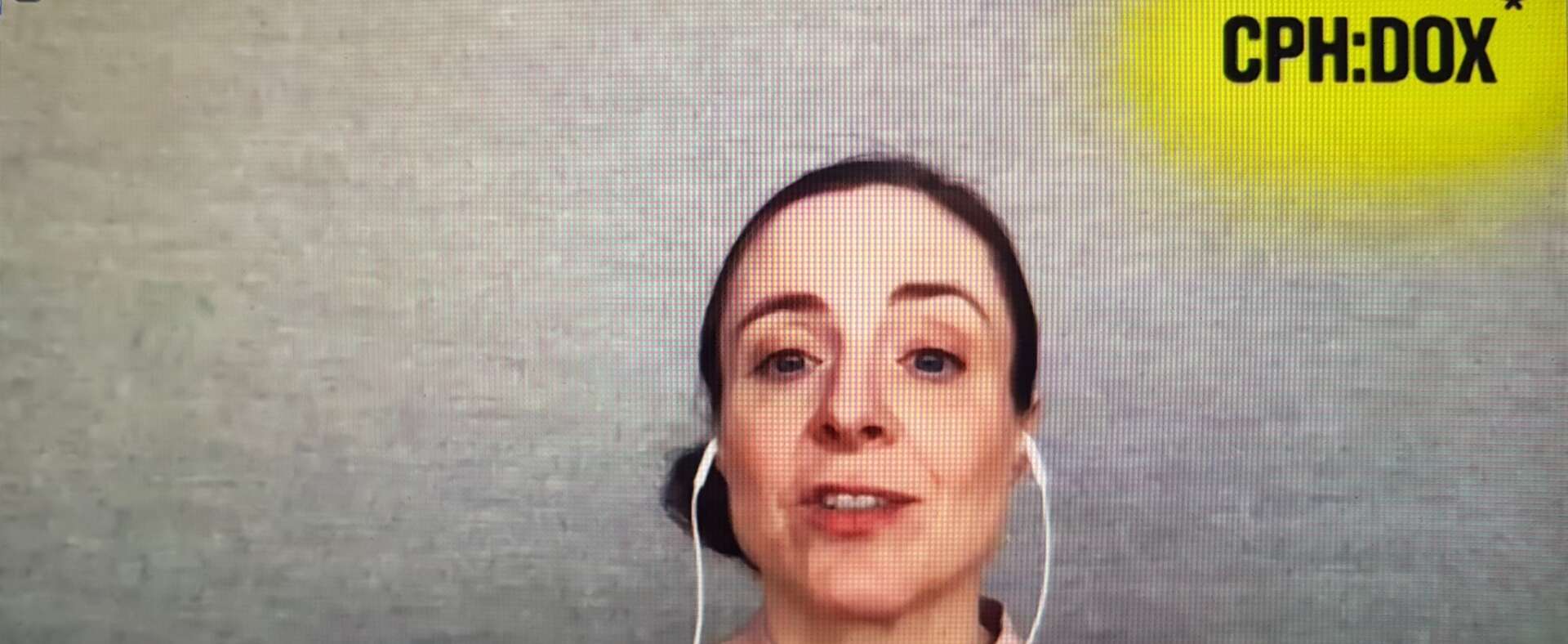
Industry execs call for cohesion, solidarity, flexibility at CPHDOX:FORUM opening
26 MARCH 2020
Reps from Creative Europe Media, EBU, the Italian Documentary Association, Cats & Docs and Final Cut for Real tackled coronavirus issues in a virtual debate held on Tuesday.
Addressing nearly 200 industry people, confined in their own homes and connected via Zoom platform, Katrine Kiilgaard, Deputy Director, Head of Industry & Training at CPH:DOX set the tone in her solemn opening speech, by underlining the state of emergency of the world around us and filmmaking community hit by the coronavirus outbreak.
She said that with millions of European people now living in isolation, “we’re experiencing some of the greatest steps against our civil liberties since WW2” including the freedom of assembly, made necessary for our own safety as governments wage war against the virus. While politicians are implementing emergency measures, Kiilgaard warned against the possibility for those to ‘stick’ too long. Citing whistle-blower Edward Snowden who took part in a CPHDOX live talk she reminded people that “temporary measures have a nasty habit of outlasting emergencies, a tendency to stick.”
Asked to give an overview of the situation in Italy - hardest hit in Europe by coronavirus - Gianluca de Angelis from the Italian Documentary Association said that the local documentary sector is in paralysis, with more than 700 professionals out of work, 1,000 working days lost just in production, and 35 independent films in distribution blocked, due to cinema closures. Emergency measures taken by the Italian government include a stimulus package of €130m to support the film and theatre industries, while Italian broadcasters were urged to replace talk shows with quality programmes, including documentaries. But for de Angelis, interacting with the international community is essential, more than before. “Without the European network, nothing can be done,” he asserted.
Speaking on behalf of the European Commission as Head of Unit Creative Europe Media, Lucia Recalde insisted that the EU Commission is doing its utmost to find solutions. She mentioned the Commission’s approval of a DKK 1 billion (approx. €130m) Danish guarantee scheme for SMEs (small and medium enterprises), affected by the virus, that should also benefit creative industries.
Recalde added that her colleagues at the Creative Media Programme are trying to alleviate the situation by introducing “as much flexibility as possible within their financial rules”, while discussions are underway with the European Investment Fund to “examine to what extent the current guarantee mechanisms to culture and creative industries could be adjusted to mitigate the negative impact of the outbreak.”
From a pubcaster’s perspective, Axel Arnö, SVT Commissioning Editor who also sits on the EBU documentary group, said that it is urgent for public stations to release more funds towards development. He also suggested for broadcasters, filmmakers and producers to work together and to innovate by using the virtual space.
Cats & Docs’ Festivals and Acquisition executive Maëlle Guenegues voiced her concern for smaller films that might get lost in the virtual space. “I’m not so worried for directors with a track record, but for all the others, it will be hard to find a space,” she noted. On a practical standpoint, to help the industry cut through the coronavirus noise and keep track of essential measures taken by governments and national bodies, Guenegues touted at the possible creation of a centralised organisation that would channel all key information.
Concluding the virtual debate, two-time Oscar nominated producer Signe Byrge Sørensen of Denmark’s Final Cut for Real reminded the industry of the catastrophic impact of the coronavirus in a global world plagued by inequality. “In Denmark, there are about 1,000 ICU beds for 5 million people, but in Zimbabwe where we’re doing a project, there are only 2 ICU beds for 16 million people!" she said.
While acknowledging the serious impact of coronavirus on the European documentary world, Sørensen, kept a positive outlook. “Cinema closures has meant huge losses for rights holders, but we do have online platforms and audiences that are paying more attention to them,” she noted.
Sørensen also underlined that despite the lockdown, much computer and desktop-based work could still be undertaken by documentary professionals, such as archive research, editing, graphics, subtitling and accounting.
“For the first time, it’s great to be in an industry that has a three-year turnaround in the production cycle,” unlike other industry sectors such as restaurants, cafés who have to make it work on a daily basis,” she added.
Looking at ways for the industry to contribute to the fight against coronavirus, Sørensen cited the creation of online resources for educational purposes to help teachers, “looking for materials to keep kids and students occupied with interesting stuff”.
She concluded by paying tribute to health workers, in the frontline of the pandemic. “Their stories are important, and we have to find ways to tell them, without putting people - including ourselves at risk."